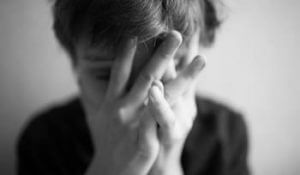Anxiety Disorder and Substance Abuse Treatment
People with addiction often also struggle with anxiety or other mental health issues. The presence of both a substance use disorder and a mental health disorder is known as “co-occurring disorders” (sometimes referred to as “dual diagnosis”).1
Co-occurring disorders are very common: Among the 52.9 million adults in the United States who were diagnosed with a mental health disorder in 2020, 32% also met the criteria for substance use disorder (the clinical term for addiction).2
This page will discuss anxiety disorders, addiction, and why it is important to receive treatment for both concurrently.
What Is an Anxiety Disorder?
It’s natural to feel bouts of anxiety over various stressors, such as an upcoming test, finances, or a major life change. Generally, anxiety subsides as the stressful situations resolve. For people with an anxiety disorder, however, feelings of worry, anxiety, and fear are persistent and may worsen over time.3
Anxiety disorders may negatively impact someone’s ability to function normally in their daily life (e.g, at work or in school) and may affect their personal relationships.3
What Are the Symptoms of Anxiety Disorders?
Symptoms of anxiety disorders may vary depending on the type of disorder. Certain symptoms may be present across multiple types of anxiety disorders. These include:3,4
- Generalized anxiety disorder (GAD), which is characterized as a chronic feeling of dread and anxiety that can negatively impact one’s daily life. Symptoms of GAD may include feelings of irritability, difficulty concentrating, insomnia, and unexplained aches and pains.
- Panic disorder, which is characterized by the experience of panic attacks. Panic attacks are intense and unexpected feelings of discomfort and fear and a sense of losing control when there is no present threat or danger. Symptoms of panic attacks include chest pain, perspiration, a sense of impending doom, and rapid heart rate.
- Social anxiety disorder, which refers to intense anxiety or fear regarding social interactions and performance. People with this disorder may avoid social interaction, suffer from intense feelings of embarrassment, and worry excessively about the judgment of others.
- Specific phobias, which refers to intense fear or severe anxiety related to specific situations or objects, such as heights, blood, or certain animals. People with a phobia may avoid situations where encountering the subject of their phobia is likely, and will often experience severe and immediate anxiety when exposed to the object or situation.
- Agoraphobia, which is an intense fear of leaving the house alone or being in situations where escape would be difficult. Common sources of anxiety include public transportation, large crowds, or wide open or enclosed spaces. People with agoraphobia will typically avoid, or experience extreme distress in, these situations.
- Separation anxiety, which can impact both children and adults. Common symptoms include avoidance of being alone, nightmares about separation from someone, and irrational worry that harm will come to an attachment figure.
Co-Occurring Anxiety Disorder and Substance Use Disorder
Anxiety and addiction frequently co-occur. In a 2013 study conducted among 43,000 people who suffered from substance use disorder within the past year, roughly 17.7% of them also met the criteria for an anxiety disorder, and 15% of those individuals with an anxiety disorder met the criteria for a substance use disorder (SUD).5
People dealing with both anxiety and substance use disorders face unique and difficult challenges. Fortunately, both conditions are treatable.6
Anxiety disorders are just one type of mental health condition that may co-occur with addiction. There are many other common mental health disorders that may occur with addiction.7,8
How Are Co-Occurring Anxiety and Addiction Diagnosed?
Since SUD and other disorders often have overlapping symptoms, patients in treatment for addiction are often assessed for co-occurring disorders carefully.6 When a patient is experiencing both the signs of anxiety and substance use disorders, treatment staff may re-evaluate patients after a period of sobriety to ensure their symptoms of anxiety were not primarily the result of intoxication or withdrawal.9
Just like anxiety disorders, substance use disorders (SUDs) should be diagnosed by a medical or clinical professional.10
Common signs of SUD include:10
- Using substances more often or for longer periods of time than intended.
- Craving substances.
- Using substances in situations where it is dangerous to do so (e.g., driving).
- Continuing to use substances despite the knowledge that it has caused or worsened a physical or psychological problem (e.g., anxiety).
The complete set of diagnostic criteria for SUD outlined in the Diagnostic and Statistical Manual of Mental Disorders (DSM-5) can be found in our guide to addiction signs and treatment.
Risk Factors for Co-Occurring Anxiety Disorder and Addiction
In many cases, it is very challenging to tell whether someone’s anxiety disorder or their addiction came first. Chronic substance use may contribute to the development of a co-occurring disorder such as anxiety. Conversely, someone may use substances in an attempt to relieve their symptoms of anxiety and eventually develop an addiction.7
Additionally, it is also common for addiction and co-occurring disorders to develop independently or simultaneously due to common risk factors. These may include:11,12,13,14
- Environmental factors. Living in stressful environments (e.g., low quality of life, constant stress, marital conflicts, physical and sexual abuse).
- Development. Undergoing certain experiences (e.g., trauma, drug use) at crucial stages in development (i.e., childhood and adolescence).
- Genetics. People with a family history of substance use and mental health disorders have a higher likelihood of developing these conditions themselves.
No matter which came first, there is a complex bi-directional relationship between anxiety disorders and substance use disorders, with each disorder modifying the presentation and treatment outcomes for the other.8
How to Help Someone with Anxiety and Substance Use Disorder

Worried couple
Helping a loved one with addiction, especially when they also struggle with another mental health disorder such as anxiety, can feel overwhelming. While you cannot fix these problems for your loved one, there are things you can do to help.15 They include:15,16,17
- Educating yourself on these conditions to better understand what your loved one is going through.
- Listening attentively to your loved one’s feelings and concerns, while refraining from judgment.
- Facilitating conversations with a doctor. Many people that are unwilling to heed the advice of a loved one may accept it from an impartial professional.
- Offering to help them find treatment.
- Exercising patience. One conversation may not be enough, but over time your loved one may come around to the idea of getting treatment.
Co-Occurring Disorder Treatment for Anxiety and Addiction
Effective treatment for addiction and anxiety addresses both disorders at the same time and is tailored to fit the patient’s unique needs.6
Desert Hope Treatment Center is a substance abuse rehab facility in Las Vegas, Nevada that is equipped to address co-occurring disorders. Our facility also offers outpatient rehab and sober living in Las Vegas. We offer a variety of services, including medication, therapy, psychoeducation, and peer support in a variety of treatment settings such as:
- Medical detox.
- Inpatient treatment.
- Intensive outpatient rehab programs.
- Partial hospitalization programs.
- Sober living.
Therapies for Anxiety and Addiction
Leaving co-occurring disorders untreated can be detrimental, as people with anxiety disorders and co-occurring substance use disorders experience worse outcomes than those with either disorder alone.8 At Desert Hope, a licensed professional will diagnose patients for co-occurring disorders and outline a treatment plan, which may include medication and a combination of behavioral therapies.
Some therapies used during addiction treatment may include:6
- Cognitive-behavioral therapy (CBT). This approach teaches patients how to recognize and cope with difficult situations by changing their ways of thinking and behaving.
- Family therapy.This approach addresses dysfunction within the family that contributes to or maintains addiction and works to heal the whole family.
- Dialectical behavior therapy, which teaches patients various skills to control intense emotions, reduce negative behaviors, and improve relationships.
Don’t wait to start the rehab admissions process. Call Desert Hope Treatment Center at to speak with an admissions navigator who can help determine how to use your health insurance to pay for rehab, find additional ways to pay for addiction treatment, and answer questions you may have about the treatment process.
Take your next step toward recovery:
✔ Learn more about our addiction treatment programs.
✔ See how popular insurance providers such as Humana or Carelon offer coverage for rehab.
✔ View photos of our facility.

